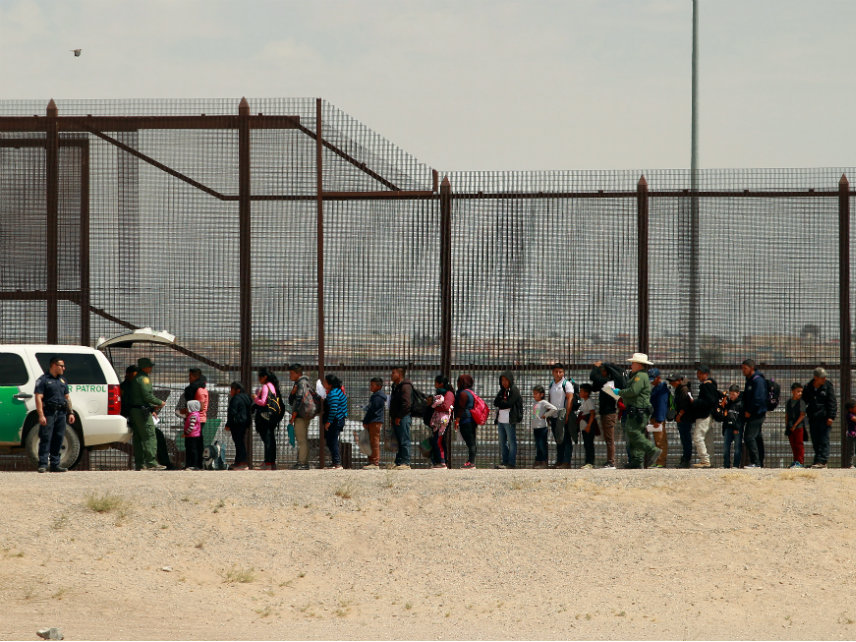Homeland Security Can't Force Asylum Seekers to Wait in Mexico, Judge Rules
Nothing in the ruling prohibits the U.S. from detaining would-be asylum-seekers until they can be granted a court hearing.

A federal judge ruled on Monday that the Trump administration cannot force asylum-seekers at the southern border to wait in Mexico until they are granted a court hearing.
It's another legal setback for President Donald Trump's efforts to curb immigration. The preliminary injunction granted by U.S. District Judge Richard Seebord halts a series of new policies implemented in January by the Department of Homeland Security (DHS) in the hopes of stopping Central American families from entering the U.S. as asylum-seekers. Seebord's ruling will take affect on Friday of this week.
The ruling comes just days after the Trump administration announced plans to expand the policy to cover other ports of entry along the southern border. The 11 plaintiffs who successfully sought the injunction against DHS had tried to enter the U.S. at the San Ysidoro checkpoint in southern California—the only border crossing where the new policy was enforced, at first. Now, the Trump administration has extended the same policy to the Calexico port of entry in southern California and to the border crossing in El Paso, Texas.
"Indications are that it will be further extended unless enjoined," wrote Seebord in issuing the injunction.
Nothing in the ruling prohibits the U.S. from detaining would-be asylum-seekers until they can be granted a court hearing, and nothing requires immigration officials to release asylum-seekers into the U.S., Seebord wrote.
While the number of border apprehensions remains well below the 1.6 million recorded in 2000, there has been a significant increase this year. Many of those apprehensions are the result of migrants willingly surrendering to border agents and claiming asylum. In mid-March, The Washington Post reported that as many as 240 migrants seeking asylum had been sent back to Mexico since the since the policy was unveiled in January.
As Reason's Shikha Dalmia noted earlier today, Mexico has been cooperating so far:
This is mainly because the number of migrants it is holding is not that large, and the country doesn't want to jeopardize ongoing trade negotiations. However, it's hard to imagine that it'll scale up the program without major bribes.
The Trump administration argues that when migrants are released, they disappear, never to be heard from again. But the Department of Justice's own figures show that 90 percent of asylum seekers do, in fact, show up for their asylum hearings for the very good reason that if they don't, they could lose their shot at ever gaining legal status.
Trump will likely blame this legal defeat on liberal judges opposing his immigration policies for partisan reasons—and, indeed, Seebord is a judge in San Francisco. But forcing asylum-seekers to remain in Mexico was never a serious solution to the problems created by a surge of migrants at the border—certainly no more serious than claiming, as Trump did this weekend, that America "is full."
It's likely that Monday's injunction is only the first volley in what will become another lengthy legal battle over a Trump administration plan to reduce legal routes to immigration—all happening while human beings fleeing gang-violence in Central America hang in the balance.


Show Comments (163)